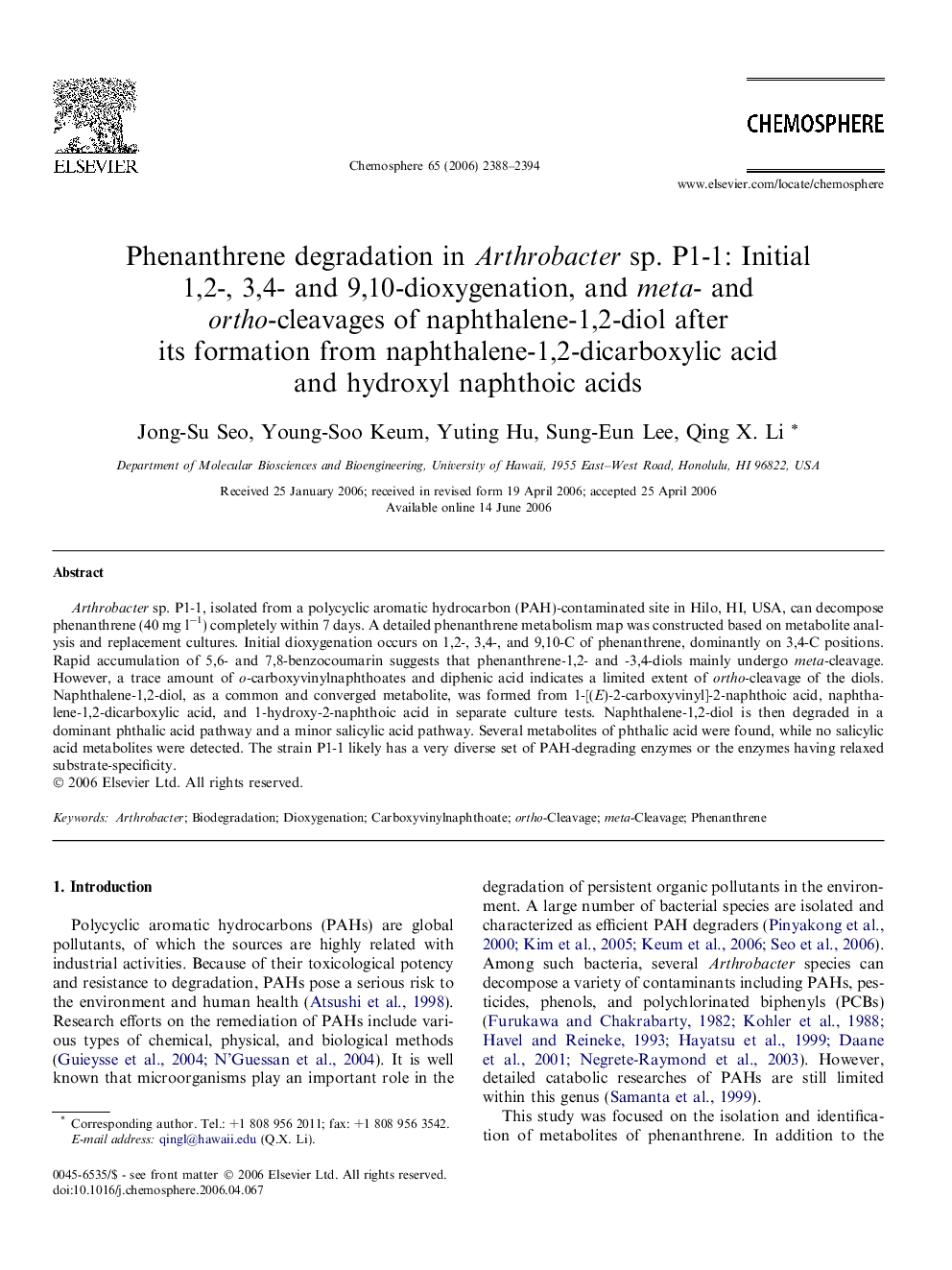| کد مقاله | کد نشریه | سال انتشار | مقاله انگلیسی | نسخه تمام متن |
|---|---|---|---|---|
| 4416063 | 1307767 | 2006 | 7 صفحه PDF | دانلود رایگان |

Arthrobacter sp. P1-1, isolated from a polycyclic aromatic hydrocarbon (PAH)-contaminated site in Hilo, HI, USA, can decompose phenanthrene (40 mg l−1) completely within 7 days. A detailed phenanthrene metabolism map was constructed based on metabolite analysis and replacement cultures. Initial dioxygenation occurs on 1,2-, 3,4-, and 9,10-C of phenanthrene, dominantly on 3,4-C positions. Rapid accumulation of 5,6- and 7,8-benzocoumarin suggests that phenanthrene-1,2- and -3,4-diols mainly undergo meta-cleavage. However, a trace amount of o-carboxyvinylnaphthoates and diphenic acid indicates a limited extent of ortho-cleavage of the diols. Naphthalene-1,2-diol, as a common and converged metabolite, was formed from 1-[(E)-2-carboxyvinyl]-2-naphthoic acid, naphthalene-1,2-dicarboxylic acid, and 1-hydroxy-2-naphthoic acid in separate culture tests. Naphthalene-1,2-diol is then degraded in a dominant phthalic acid pathway and a minor salicylic acid pathway. Several metabolites of phthalic acid were found, while no salicylic acid metabolites were detected. The strain P1-1 likely has a very diverse set of PAH-degrading enzymes or the enzymes having relaxed substrate-specificity.
Journal: Chemosphere - Volume 65, Issue 11, December 2006, Pages 2388–2394